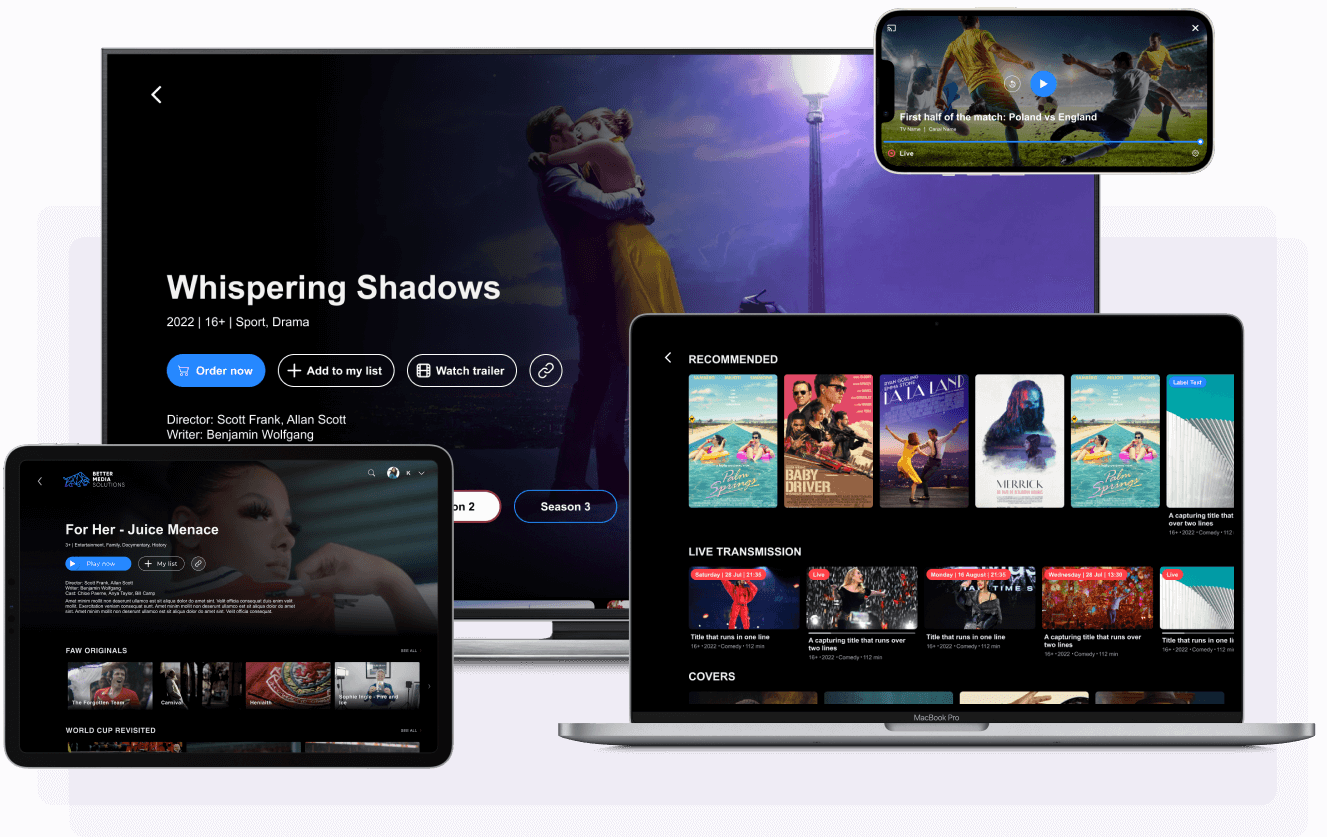OTT Platform
The OTT (Over-the-Top) Platform project aims to develop a robust, scalable, and user-friendly digital streaming service that delivers on-demand video content, including movies, TV shows, web series, and live events. The platform will cater to diverse user preferences with personalized recommendations, high-quality streaming, and a seamless user experience across multiple devices.
Objectives
- Content Accessibility: Provide a wide variety of on-demand and live-streaming content accessible anytime, anywhere.
- User Engagement: Offer personalized content recommendations and interactive features to enhance user retention.
- High-Quality Streaming: Ensure adaptive streaming for uninterrupted viewing across varying internet speeds.
- Scalability: Build a platform capable of handling millions of users concurrently.
- Revenue Generation: Support multiple monetization models, including subscriptions, ads, and pay-per-view.
Key Features
-
User Features:
- User Profiles: Multiple profiles under one account with content preferences and viewing history.
- Content Discovery: Advanced search, genre filtering, trending lists, and personalized recommendations.
- Streaming Quality: Adaptive bitrate streaming for optimal playback on various devices.
- Offline Viewing: Option to download content for offline access.
- Watchlist and Resume Playback: Save favorites and resume watching from where you left off.
-
Content Management:
- Easy uploading and categorization of content for administrators.
- Support for subtitles, multiple audio tracks, and regional content.
- Metadata management for enhanced discoverability.
-
Monetization Models:
- Subscription-Based (SVOD): Monthly or yearly plans for premium content access.
- Ad-Supported (AVOD): Free content with periodic advertisements.
- Transactional (TVOD): Pay-per-view for specific content like movies or events.
-
Admin Features:
- Content management system (CMS) for organizing and publishing content.
- User management, including subscriptions, profiles, and access control.
- Analytics dashboard for insights into user behavior, content performance, and revenue trends.
- Moderation tools to ensure compliance with content guidelines.
-
Technology and Security:
- Content Delivery Network (CDN): Global distribution for low-latency streaming.
- Digital Rights Management (DRM): Protect content from piracy and unauthorized access.
- Secure Payments: Integration with multiple payment gateways and fraud detection.
- Scalable Architecture: Use of cloud services to handle peak traffic.
-
Engagement Features:
- Notifications for new releases, personalized recommendations, and upcoming events.
- Integration with social media for sharing and engagement.
- Rating and review systems to gather user feedback.
Expected Benefits
- Increased reach by catering to global audiences with multilingual and regional content.
- Enhanced user satisfaction through personalized and high-quality streaming experiences.
- Diverse revenue streams via flexible monetization models.
- Strong market positioning as a competitive player in the growing OTT space.
Implementation Phases
- Requirement Gathering: Understand target audience preferences, key features, and market trends.
- Design: Develop user-friendly interfaces for web and mobile apps, ensuring intuitive navigation.
- Development: Build the platform backend (content management, user management, analytics) and front-end (apps and website).
- Testing: Conduct thorough testing for performance, security, and cross-platform compatibility.
- Launch: Roll out the platform with a marketing campaign to attract users.
- Maintenance and Scaling: Monitor platform performance, address user feedback, and introduce new features or content regularly.



